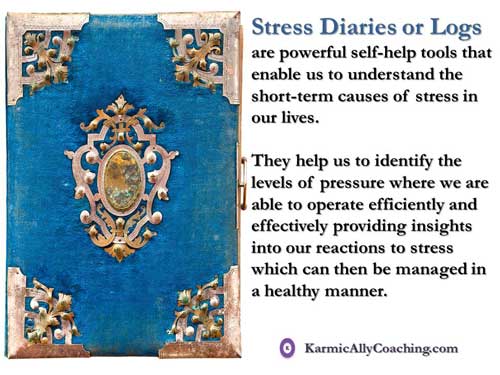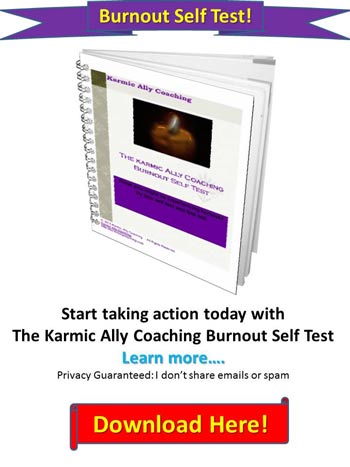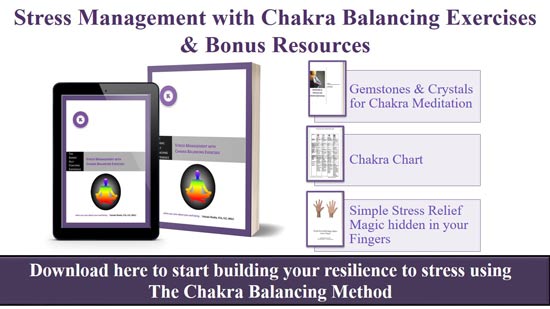This post has already been read 3379 times!

What happens when well-meaning induction training starts going wrong?
This week’s post addresses the issue of Stress Triggers which came up in a coaching session and what this professional did to avoid burnout and start performing in his new job.
To quote his feelings and concern:
“I’m new to my job and my new boss is really nice but I’m beginning to feel overwhelmed with the induction training. I know my boss is trying to help me settle in quickly, but his actions are having the opposite effect on me.
I’m supposed to be made to come out of my comfort zone but hey, I’m in a new job, am settling in and in fact am already way outside my comfort zone! What should I do so that stress does not affect my work performance and stops spilling into my home life?”
The client understood that certain behaviors of the boss, although not deliberate, were creating overwhelm.
The truth about today’s corporate world
In today’s high pressured corporate environment, team leaders often feel compelled to get their new team members contributing towards departmental bottom lines fast without realizing this may lead to burnout.
Knowing that he needed to cope with the short-term stressful situation without getting onto the wrong foot with the boss, our first step was to implement self-coping skills until the next session.
This included breathing and grounding exercises to avert any anxiety or panic attacks.
Next, we started to create a Stress Log also known as a Stress Diary to determine the exact trigger events which were causing the unease. The client was told to record everything, whether it was at work or at home.
At our next session, the client had already analyzed his stress triggers and come to the realization that there had been recent Life events which had reduced his resilience, escalated his desire to perform at the same peak levels as in his previous job completely ignoring the fact that he needed time to absorb the requirements of the new position for which he was more than adequately qualified and competent.
Armed with the new knowledge, we proceeded to work on resilience coaching.
How to create a simple yet powerful Stress Diary
Stress Diaries or Stress Logs are powerful self-help tools that enable us to understand the short-term causes of stress in our lives. They help us to identify the levels of pressure where we are able to operate efficiently and effectively providing insights into our reactions to stress. This can then be managed in a healthy manner.
Some people prefer to do the exercise on an hourly basis. I prefer to look at it in total for the day recording ONLY the events which bring on a stress reaction.
You may wish to buy a special diary or make note of it in a spreadsheet file on your computer. The important part is the information that you record.

So for a particular day, when you experience a stressful situation, you would note down the following information in a columnar form:
- A description of the situation that stressed you. For example, was it an event, a trigger phrase or the non-occurrence of an event?
- How you reacted externally to the situation. Ask yourself, did your reaction to the situation contribute to your stress?
- How you felt internally, both physically and emotionally. For example, stomachache; did you feel like vomiting, crying, anger, tension headache?
- What were you thinking when you had the stress reaction? This step is important because many times our reaction is not so much to the current situation but more due to latent memories of times when a similar situation may have come up which we did not manage well or may remind us of some other occasion when we felt incompetent.
- What stress busting activity did you do to control the stress? For example, drank a glass of water, went for a short walk, went to the toilet and cried. Also note how you felt afterwards.
- Did the stress busting activity work or did it further aggravate the situation? It sometimes helps to create scales where 1 is ‘did not help’ and 10 is ‘worked brilliantly”
Once you’ve kept a Stress Diary for a few days, you can analyze it and take more positive and resilience building actions.
Having highlighted the stressors and identified the underlying causes as well as your external and internal reactions, you are better placed to implement effective stress busters.
For example, if your boss rejected a piece of work you submitted, your external reaction might have been to keep quiet but internally you felt angry. You might have coped by going to the water cooler complaining about your boss to the nearest sympathetic ear.
Not a good strategy if on returning to your seat, your boss came up to you and offered to show you how to do the task (especially if your organization is highly political).
Instead, it would be prudent to try some healthy stress busting activities including those suggested in the Stress Category in Blog that help minimize damage all around.
If you are experiencing short term stress, whether it is at work or on the home front, I strongly recommend keeping a Stress Log and make notes to identify the stress trigger and reaction. Be proactive and implement resilience building stress busting activities.
Do you know your Stress Triggers? How did you cope?
Tell me more in the comments box below!
Want to learn a better way to manage your stress levels? Consider Chakra Balancing as a tool for Stress Management . The exercises and tips in the book are good for general well-being and stress resilience. Click the image below to learn more.
Written By: Vatsala Shukla





 I adhere to the Certified Coaches Alliance Code of Ethics and Standards. A copy is available on request.
I adhere to the Certified Coaches Alliance Code of Ethics and Standards. A copy is available on request.
 Let's Talk through the Connect Form:
Let's Talk through the Connect Form:
In the larger scheme of things, I think that companies and executive staff don’t realize how much stress they place on employees. Of course, their focus is about getting the work done. Even if they asked their employees if this or that was stressful, the response would not be totally honest. As no one wants to admit it for fear of not being seen as a team player. A stress log or journal can be beneficial to an employee, but I think companies need to reevaluate how much stress they are creating and find ways to reduce it.
I agree with you 100% Joyce. The attrition rates at my last corporate employer were frighteningly high. 40% in the first year of employment and 40% in the second year and then a taper off. In pure numbers that meant if there were 100 new recruits in year 0, by year 3 only 20 remained despite this company being the best paymaster in the industry. The exit interviews indicated the top reason for quitting was work life balance, In other words, accumulating stress. This company didn’t do much about it or perhaps didn’t know how to contain it so kept recruiting. Believe it or not but our Alumni is a highly impressive one and we all have the common factor of having taken the decision to move onto calmer callings and jobs. 🙂
Thanks, Vatsala, I think the stress journal may be helpful for the bosses as well!
Absolutely Reba. A Stress Journal can help anyone who is willing to do the exercise to reduce their Stress Triggers.
Vatsala, I’m approaching this kind of thing from maybe the exact opposite end of where you are now. I get reactive — stress, fear, reluctance, resistance, you name it! — and I just pull it in and settle. I’ve learned that resilience is always ever present and available, if I can just frickin’ settle, let go of my thinking enough to remember to breathe, and settle into the moment.
Works every time.
Including the difficult moments.
I like my life much better this way. And my clients and mentees seem to as well. Your mileage may vary. Of course.
xoxox
I hear you, Sue. Resilience is always within us if we allow it to work with us to achieve our goals. Coming from a reactive place isn’t bad, you know. Sometimes it’s actually what the situation requires to get a message through to others and out of our system. I have to do it sometimes too. At the end of the day, it’s what works for us without damaging our health and relationships that matters.
Yes I know my stress triggers and since I became more in touch with my intuition, listen to and follow my inner wisdom. I use my journal, tapping and walk on the beach xxx
Praise be our intuition, Suzie. I use the Clear Crystal Quartz and Rose Quartz to help me gain clarity while writing in my Stress Log.
Great ideas here. I’ve never heard of a stress diary, love it
Stress Diaries and Logs are useful for recording events and feelings and help us to see the situation clearly so we can take action, Sue. Glad you liked it.
Excellent outline for a discovery and cure process; and, I loved the fact that some of the stress was acknowledged to be coming from outside the work environment. It’s critical for a supervisor to acknowledge that whole folks come to work each day, not just a package of skills and training!
Thank you Andrea. A key step in successful transformation is to accept that one’s life and issues that are being addressed have links to other aspects of life. The Wheel of Life too is an excellent overview tool and in this case, we went deeper to find out the real cause of stress and found there was a lot more going on than the induction training by an enthusiastic driven Manager!
Great post, Vatsal. Enjoyed reading it. Well done.
Roslyn (fellow Creativity Course member)
Thank you, Roslyn for your encouraging words. And a special thank you for dropping by at the blog.